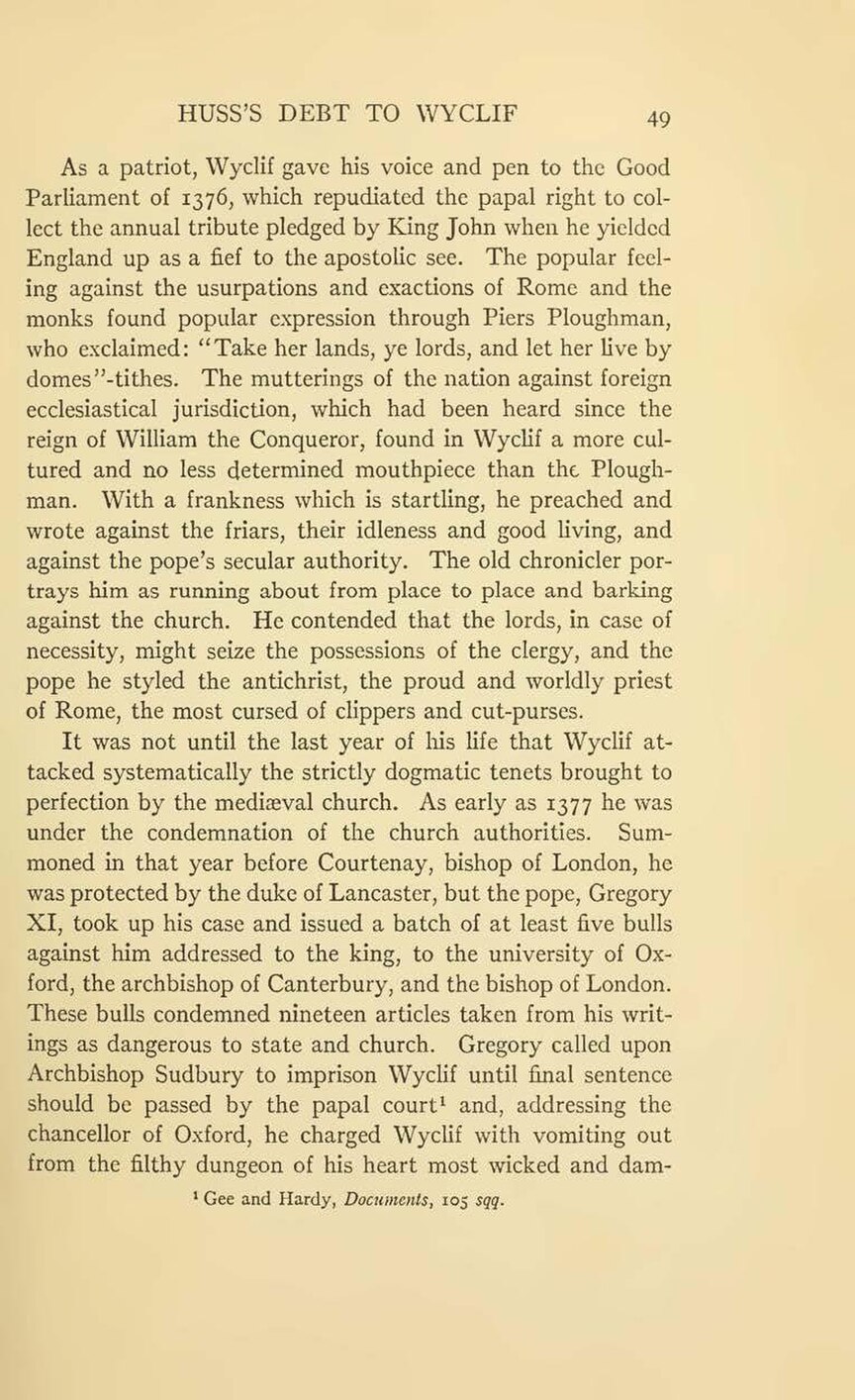As a patriot, Wyclif gave his voice and pen to the Good Parliament of 1376, which repudiated the papal right to collect the annual tribute pledged by King John when he yielded England up as a fief to the apostolic see. The popular feeling against the usurpations and exactions of Rome and the monks found popular expression through Piers Ploughman, who exclaimed: “Take her lands, ye lords, and let her live by domes”–tithes. The mutterings of the nation against foreign ecclesiastical jurisdiction, which had been heard since the reign of William the Conqueror, found in Wyclif a more cultured and no less determined mouthpiece than the Ploughman. With a frankness which is startling, he preached and wrote against the friars, their idleness and good living, and against the pope’s secular authority. The old chronicler portrays him as running about from place to place and barking against the church. He contended that the lords, in case of necessity, might seize the possessions of the clergy, and the pope he styled the antichrist, the proud and worldly priest of Rome, the most cursed of clippers and cut-purses.
It was not until the last year of his life that Wyclif attacked systematically the strictly dogmatic tenets brought to perfection by the mediæval church. As early as 1377 he was under the condemnation of the church authorities. Summoned in that year before Courtenay, bishop of London, he was protected by the duke of Lancaster, but the pope, Gregory XI, took up his case and issued a batch of at least five bulls against him addressed to the king, to the university of Oxford, the archbishop of Canterbury, and the bishop of London. These bulls condemned nineteen articles taken from his writings as dangerous to state and church. Gregory called upon Archbishop Sudbury to imprison Wyclif until final sentence should be passed by the papal court[1] and, addressing the chancellor of Oxford, he charged Wyclif with vomiting out from the filthy dungeon of his heart most wicked and dam-
- ↑ Gee and Hardy, Documents, 105 sqq.
